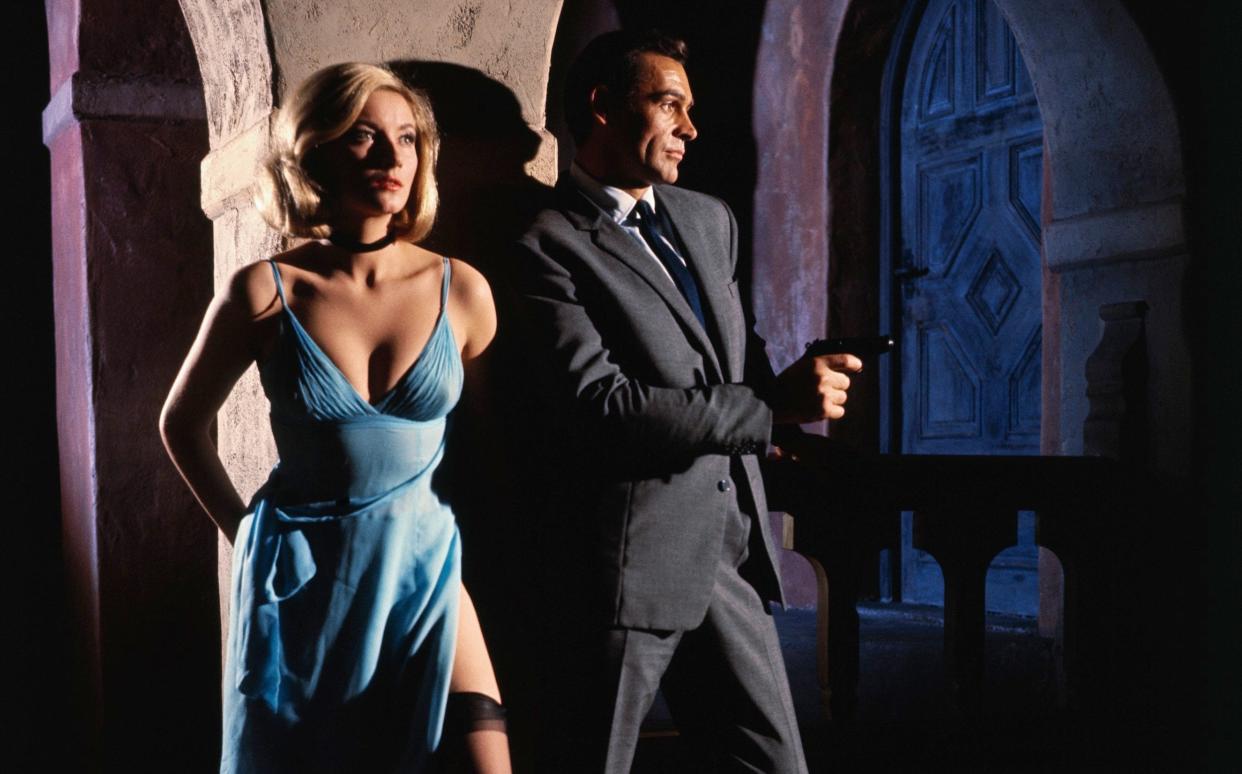What office managers can learn from spies

James Bond used to fret occasionally in Ian Fleming’s novels about what he would do when he reached 45, the statutory retirement age for 00s (luckily for Roger Moore, this is never mentioned in the films). These days the answer would be obvious: if you’ve worked in Intelligence, write a book in what Amazon calls the “Motivation and Self-Improvement” category, instructing ordinary folk on how to thrive in life by applying the skills you’ve honed.
There’s been a rash of them in recent years: How Spies Think by former GCHQ director Sir David Omand (which promises to “show how the big decisions in your life will be easier to make when you apply the same frameworks used by British Intelligence”); A Spy’s Guide to Thinking and Strategy by former CIA case officer John Braddock; MI6 Spy Skills for Civilians by ex-agent Red Riley. It can only be a matter of time before we get “How to Psych Friends and Waterboard People”.
It’s obviously a profitable genre as two more examples are hitting the shops. Counter-Intelligence: What the Secret World Can Teach Us About Problem-Solving and Creativity (★★★) is by one of Omand’s successors as head of GCHQ, Robert Hannigan: perhaps to avoid going over the same territory as Omand, it is targeted at management-level, offering advice on how to assemble a team and get the best out of it. Since, as Hannigan puts it, “while government tends to be a byword for IT inefficiency, underperformance and overspend, GCHQ… generally bucks that trend,” he is worth listening to.
GCHQ has, Hannigan asserts, always tried to maintain the insights into team-building that were revealed more or less by accident in its crucible at Bletchley Park during the Second World War. The importance of cryptanalysis was generally underrated, and so GC&CS (as GCHQ was then known) “performed extraordinary feats with a collection of people no one else wanted or considered important” – basically, women, oddballs and the unposh – while the men who looked like heroes should look were off doing supposedly more important things. “I know I told you to leave no stone unturned to find the necessary staff,” Churchill supposedly said to the head of MI6, “but I didn’t mean you to take me so literally.”
The leaders of most organisations, Hannigan observes, recruit people who mirror their strengths (and weaknesses) back at them, when they should be striving for diversity. Homogeneity can spell disaster: “The failure of Western intelligence agencies has often had a great deal to do with… an inability to step out of a mostly white, middle-class, university-educated background and into your adversary’s shoes.” And too many businesses hire extroverts and quick thinkers: the ruminative Alan Turing would be “unlikely [to] excel at many of the entrance tests for today’s public and private sector organisations”.
One does sometimes feel, when reading this book, that it hardly needed a director of GCHQ to point out what we can learn from anecdotes about Bletchley Park that are already mostly in the public domain, or from the TV spy series Homeland. What we’d like, of course, is just what he can’t give us: stories that reflect how GCHQ operates today. Still, there is the odd insight. I was delighted to learn that GCHQ has its own brass band – “Top Secret Brass” – and that “The Doughnut”, its Cheltenham headquarters, houses an intricate model of itself made by the GCHQ Lego club. One politician told Hannigan that at GCHQ they seem to spend all their time playing. Well, it looks like that gets results.

Julian Fisher’s Think Like a Spy (★★★★) offers something very different from Hannigan’s measured, rather impersonal volume: within the first few pages he is recounting a gruesome story about the Russian spy Oleg Penkovsky being fed into a crematorium furnace while conscious, and goes on to talk about how his sister’s suicide when
he was a teenager left him so depressed that he threw himself in front of a moving car and spent months in hospital.
Despite his rocky start in life – he was raised in “the poorest postcode in Britain”, in inner-city Birmingham – Fisher has gone on to work as a government consultant on international relations, and now runs what he describes mysteriously as a “specialist intelligence company providing esoteric services to blue-chip clients”; he was also the lead trainer on the Channel 4 reality show Spies. His argument is that if he can make a success of his life, anybody can – if they take on board his advice on how to find and retain what he calls “goals allies” (people who will be useful in helping you advance up the career ladder or start a business), based on his observations of how spies recruit and retain agents.
Fisher’s book is far more practical than Hannigan’s, telling us how to go about researching people who might be useful, how to practise the art of “pre-suasion” (making people sympathetic to you before you give them your pitch), how to put people at ease with your body language. Some of this is tempting to scoff at – do spies really spend a few minutes in the bathroom before recruitments adopting a “winner’s pose” – “arms stretched out above you in a V shape, chin lifted, mouth open”? But perhaps this sort of scepticism explains why I am a humble book reviewer for The Telegraph rather than its managing director.
Unlike Hannigan, Fisher illustrates his points with swashbuckling anecdotes from his own career: how he talked his way out of trouble when a group of AK47-wielding Congolese soldiers decided he was a spy; how he helped to save a trafficked erotic dancer in Tokyo. He is also winningly open about his vulnerabilities and failings. Of course, since this is a book about how to manipulate other people into liking you, readers will be aware that Fisher is doing the same thing to them, but even so it is hard not to find this an endearing as well as a thought-provoking read.
Counter-Intelligence : What the Secret World Can Teach Us About Problem-Solving and Creativity is published by HarperCollins at £25. To order your copy for £19.99 call 0808 196 6794 or visit Telegraph Books
Think Like a Spy: Master the Art of Influence and Build Life-Changing Alliances is published by Piatkus at £16.99. To order your copy for £14.99 call 0808 196 6794 or visit Telegraph Books


